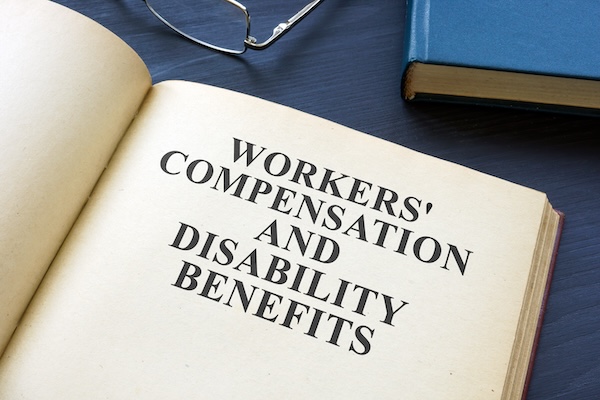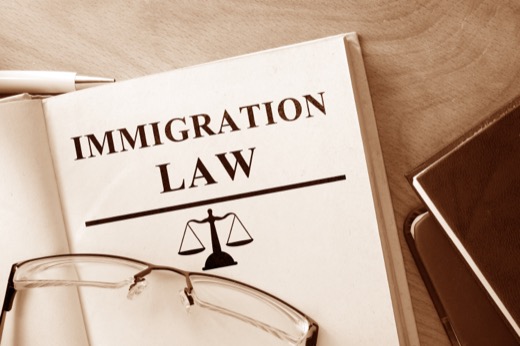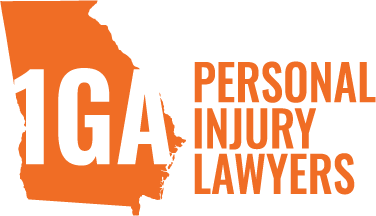- Workers' Comp
Essential Guide to Workers’ Compensation Laws in Georgia
Injured on the Job? Here’s What Every Georgia Worker Needs to Know
If you’ve been hurt at work, the last thing you need is confusion about your rights or delays in getting help. Understanding workers compensation laws in Georgia can be overwhelming, especially when you’re dealing with medical bills, lost income, and the stress of recovery.
That’s where a skilled workers’ compensation lawyer in Georgia can make all the difference.
At 1Georgia Injury Lawyers, we specialize in helping injured employees navigate the complex rules of the Georgia workers compensation system. From filing a workers compensation claim to securing your medical benefits and disability benefits, our team is here to fight for the compensation benefits you’re legally entitled to.
Whether you’re a full-time employee, part-time staffer, or seasonal worker, your health and financial future matter—and we’re ready to help you protect both.
Understanding Georgia Workers’ Compensation Laws: Your Rights and Employer Responsibilities
The Georgia workers compensation laws are designed to protect employees who suffer from work-related injuries or occupational illnesses. These laws are outlined in the Georgia Workers Compensation Act, which requires most employers to provide workers comp coverage to their employees.
Under these state laws, any business with three or more employees—whether full-time, part-time, or seasonal employees—is legally required to carry workers compensation insurance. This ensures that if an accident arises on the job or an employee’s injury occurs due to repetitive stress, exposure, or another work-related cause, the injured worker can receive benefits without having to sue their employer.
Key points about Georgia workers compensation laws include:
- Employees are entitled to medical care and medical benefits for their injury or illness.
- Disability benefits are typically two thirds of your average weekly wage, subject to state maximums.
- The employer must notify their workers compensation carrier immediately after an injury is reported.
- The state board of workers compensation oversees compliance and manages disputes.
- You can choose from a list of approved industrial clinics or physicians for medical treatment.
- In case of disputes, cases may go before an administrative law judge from the State Board.
If an insurance carrier or workers compensation insurer denies your claim, or if you’re not receiving proper medical attention, you have the right to appeal. Employers who fail to carry workers compensation insurance can face criminal penalties enforced by the Enforcement Division of the Georgia State Board.
Whether you’re just starting a workers compensation claim or need help navigating the appeals process, knowing your rights under the compensation act is essential. An experienced workers’ compensation lawyer in Georgia can help ensure you’re treated fairly and receive the other benefits you may be entitled to.
Understanding Georgia Workers Compensation Laws: Your Rights and Employer Responsibilities
The Georgia Workers Compensation Act provides crucial protections for employees who suffer from work-related injuries or illnesses. Under this law, injured workers are entitled to workers compensation benefits such as medical care, disability benefits, and death benefits without needing to prove fault or negligence on the part of the employer.
Specifics of the Georgia Workers Compensation Act
The Georgia Workers Compensation Act establishes the framework for how workers compensation insurance operates within the state. It outlines the rights of injured employees, the obligations of employers, and the process for filing a workers compensation claim. It also ensures that workers can access medical treatment, physical therapy, and receive wage replacement equal to two thirds of their average weekly wage.
The workers compensation statute applies to a wide range of injuries, including sudden accidents, repetitive strain injuries, and occupational diseases. It ensures that medical services, medical expenses, and ongoing medical attention are covered.
Who Must Provide Workers’ Comp Coverage?
In Georgia, any employer with three or more employees must legally provide workers comp coverage through a certified workers compensation insurance carrier. This includes full-time workers, part-time staff, and seasonal employees. Even seasonal workers who are only employed for a short period are considered employees under the law and are eligible for compensation benefits if an accident occurred during their employment.
Employers must post a panel of approved doctors or an approved managed care organization where injured workers can seek medical treatment.
Employer Responsibilities and Penalties
Employers have several critical responsibilities under Georgia workers compensation laws, including:
- Carrying active workers compensation insurance.
- Reporting all workplace injuries promptly to their insurance carrier.
- Providing information about available medical services.
- Cooperating fully with the State Board of Workers’ Compensation.
Failure to comply with these responsibilities can lead to serious criminal penalties, including fines and potential jail time. The enforcement division of the State Board monitors compliance and enforces sanctions against employers who attempt to avoid providing workers compensation coverage.
Oversight by the Georgia State Board of Workers’ Compensation
The Georgia State Board of Workers’ Compensation (often simply referred to as the state board) administers the state’s workers compensation system. Its duties include:
- Resolving disputes between injured workers, employers, and insurance companies.
- Reviewing and approving settlements.
- Assigning cases to an administrative law judge when formal hearings are needed.
- Educating workers and employers about their rights and responsibilities.
- Ensuring that injured employees receive benefits promptly and fairly.
The state board of workers compensation plays a critical role in maintaining the integrity of the system and protecting the rights of Georgia workers who have suffered an employee’s injury or developed an occupational disease.
What Benefits Can Injured Workers Receive Under Georgia Law?
If you’ve suffered a workplace injury in Georgia, the workers compensation system provides several types of compensation benefits to help you recover physically and financially. These benefits are outlined under the Georgia Workers Compensation Act and are available to most injured employees through their employer’s workers compensation insurance.
Here’s a breakdown of the key workers compensation benefits available in Georgia:
Medical Benefits and Coverage for Medical Expenses
Injured workers are entitled to full coverage of medical expenses related to their work-related injuries. This includes:
- Doctor visits
- Hospital stays
- Surgeries
- Physical therapy
- Prescription medications
- Necessary rehabilitation
You must receive care from an approved list of doctors provided by your employer, which often includes industrial clinics. Emergency treatment and referrals to specialists may also be covered, depending on the situation.
Disability Benefits
When an injured worker cannot return to work temporarily or permanently, they may be eligible for disability benefits:
- Temporary Total Disability (TTD): If you cannot work at all during recovery, you may receive two thirds of your average weekly wage, up to the state maximum.
- Temporary Partial Disability (TPD): If you return to work with restrictions and earn less than before, partial benefits are available.
- Permanent Partial Disability (PPD): If your injury leads to permanent impairment, compensation is based on a disability rating assigned by your treating physician.
These disability benefits help bridge the gap in income while you recover or adjust to a new work capacity.
Death Benefits for Surviving Spouses and Dependents
If a workplace injury leads to a fatality, death benefits are available to the surviving spouse, minor children, or other dependents of the deceased worker. These benefits include:
- Weekly payments of two thirds of the worker’s average weekly wage
- Funeral and burial expenses (up to a set limit)
The widowed spouse or dependent family members are supported through this compensation, helping ease the financial burden during a devastating time.
Wage Replacement
Wage replacement benefits are one of the core protections under Georgia workers compensation laws. If you’re unable to work due to your injury, you may be eligible to receive two thirds of your average weekly wage, with a cap set by the state. These payments typically begin after a short waiting period and continue for as long as you’re medically unable to work.
Coverage of Medical Treatment at Industrial Clinics or Approved Doctors
Your employer or their workers compensation insurer must provide a list of at least six approved healthcare providers or a certified Managed Care Organization (MCO). You must select your medical treatment provider from this list, which often includes industrial clinics specializing in occupational injuries. You’re allowed to change providers once without permission from your insurance company or the state board.
What Happens When Things Go Wrong With Your Claim?
Even though the Georgia workers compensation system is designed to support injured employees, it doesn’t always work as it should. Many workers face frustrating roadblocks during the claims process, often requiring help from an experienced workers’ compensation lawyer in Georgia. Common issues include:
- Claim Denials: Even valid claims can be denied by the workers compensation insurance carrier, often due to disputes about how the accident occurred or the timing of the report. You have the right to appeal through the Georgia State Board of Workers’ Compensation and request a hearing with an administrative law judge.
- Delayed or Denied Medical Care: Access to medical treatment is critical, but some insurance companies delay or deny approval for surgeries, physical therapy, or referrals—putting your recovery at risk.
- Incorrect Wage Calculations: Your disability benefits are based on your average weekly wage, but some employers or insurers exclude overtime or bonuses, leading to unfairly low compensation benefits.
- Coordination with Social Security: Receiving both workers compensation benefits and social security benefits can be tricky. A legal expert can help you avoid benefit reductions and ensure you’re maximizing your total support.
- Employer Retaliation: It’s illegal for an employer to retaliate against you for filing a claim, yet some still do. Georgia law offers protections, and you may be entitled to take legal action.
If you’re facing any of these challenges, don’t navigate the system alone. Legal guidance can make all the difference in protecting your rights and ensuring you receive benefits fairly.
Get the Compensation You Deserve — Contact 1Georgia Injury Lawyers Today
Navigating the complexities of the Georgia workers compensation system can be overwhelming—especially when you’re trying to recover from a serious workplace injury. At 1Georgia Injury Lawyers, we’re committed to helping injured workers fight for the full workers compensation benefits they’re entitled to under the law.
Whether you’re dealing with a denied workers compensation claim, delayed medical treatment, or unfair wage calculations, our experienced team is here to stand up to the insurance company and protect your rights.
Don’t wait to get the help you need. Contact us today to speak with a trusted workers’ compensation lawyer in Georgia who will listen, guide you, and fight for the benefits you deserve.
📞 Call us now at 678-635-9939 to schedule your free consultation.











